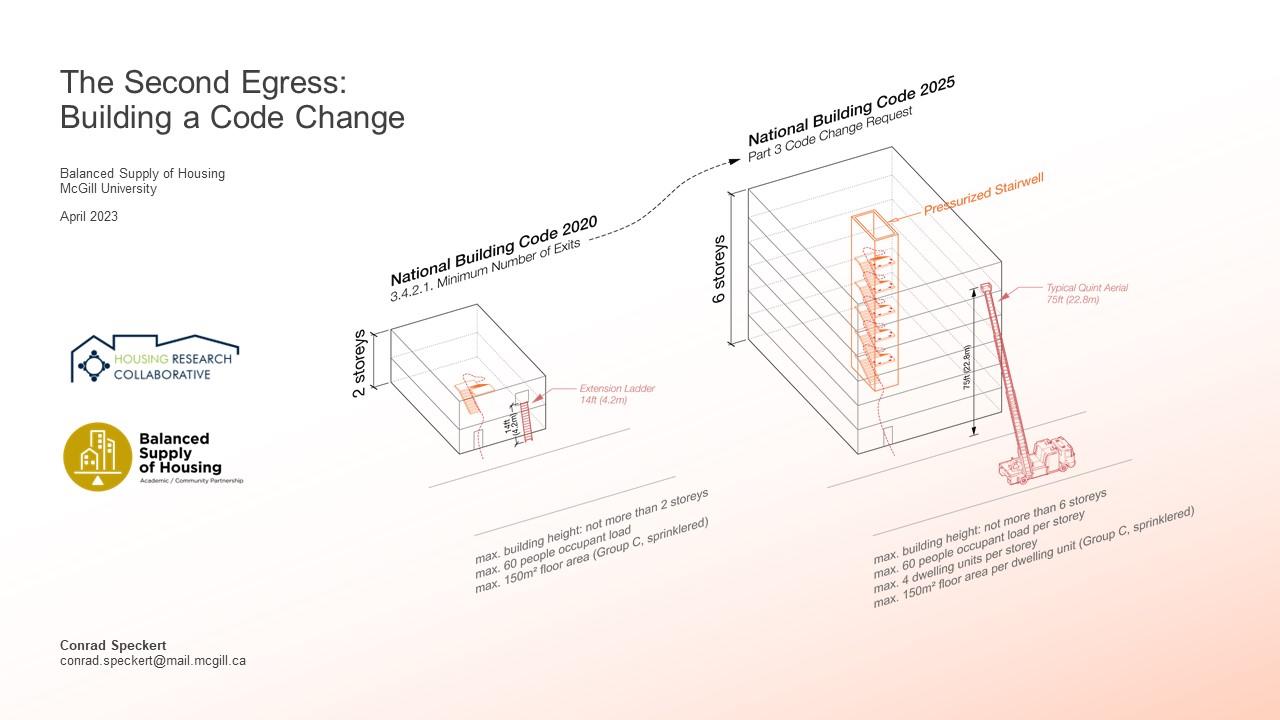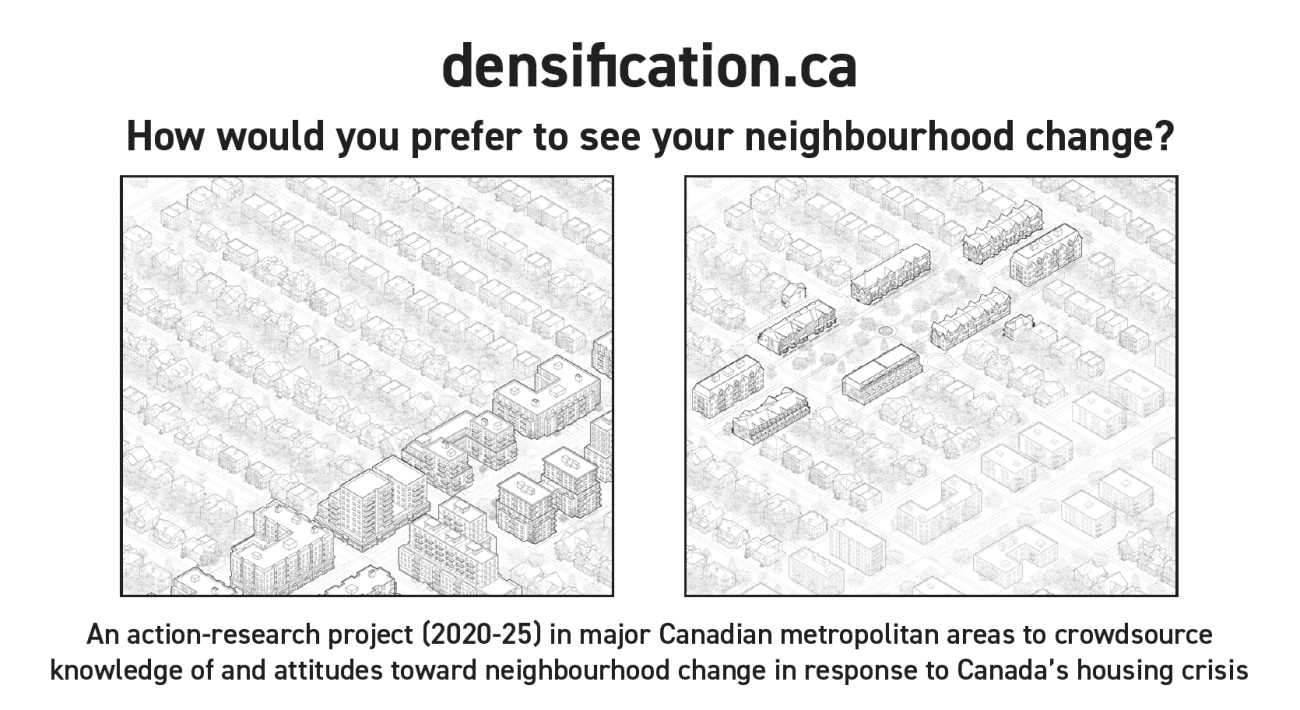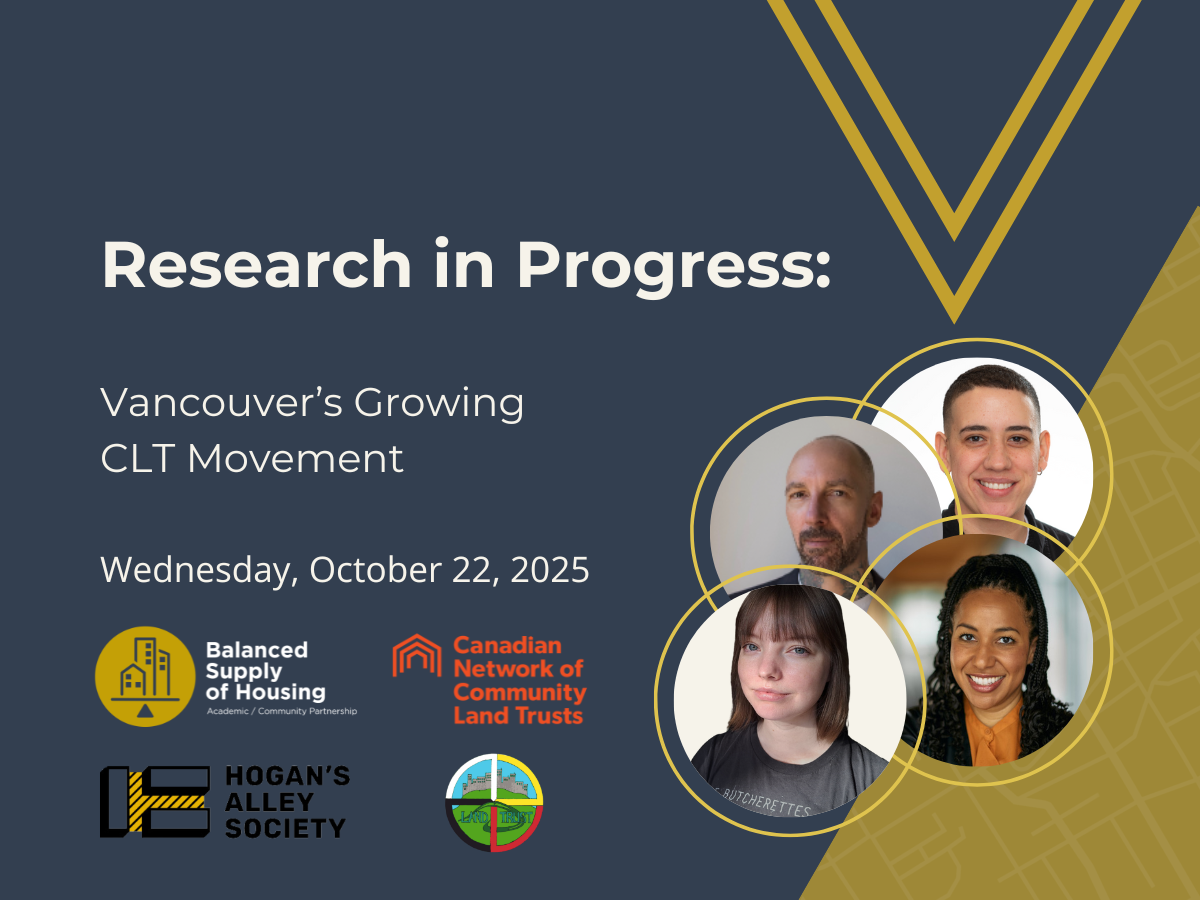Webinar presentation on “The Missing Middle and the Second Egress: Building a Code Change” with professor Dr. Nik Luka and researcher and architect, Conrad Speckert.
Speakers:
Conrad Speckert (he/him)
Conrad is an intern architect at LGA Architectural Partners in Toronto with degrees from McGill University and the University of Waterloo. His thesis project proposed a building code change to allow for single stair residential buildings up to six storeys and has since evolved into a CMHC Balanced Supply of Housing research project to change the National Building Code of Canada. He has a passion for building code and zoning reforms to address housing supply and joined LGA as project manager for ‘ReHousing the Yellowbelt,’ a collaboration with the University of Toronto to study the gentle densification of existing neighbourhoods. He previously worked for architects in Toronto, Vancouver, Berlin, and Tokyo, becoming well-versed in the design of “missing middle” and mid-rise residential buildings.
Conrad is also an occasional guest speaker at the Canadian Home Builder’s Association on gentle densification and building code issues.
Nik Luka (he/his/ il/lui)
Nik Luka is an ethnographer specialised in housing, social practice, and landscape studies. With a dual background in architecture and urban planning as well as a doctorate in cultural geography, he works in close collaboration with civil-society organisations and state agencies on coproduction through community-based design. Over the last 25 years his activities have broadly focused on the deliberate policy-led remaking of everyday space through what is known in German as Stadtumbau (literally the reworking of cities and suburbs). Current undertakings include a SSHRC Partnership Grant with colleagues across Canada on how to strategically address the housing crisis, an action-research project (also funded by SSHRC) on commoning and coproduction of public space focusing on Montréal’s Champ des Possibles, and several EU-funded projects with colleagues in Sweden, Switzerland, France, and the low countries seeking to conjugate densification, policy impulses to transit-oriented development, and context-responsive landscape strategies in postsuburban and periurban contexts.
The Second Egress: Building a Code Change
This research presents a first attempt to decode the requirement for two exit stairs in the National Building Code of Canada – to document its adverse effect on the design of small multi-unit residential buildings and to compare Canada with other jurisdictions where this is not required. The study has since evolved into a code change request submitted to the Canadian Commission on Building and Fire Codes in April 2022. Underpinning this research is the idea that architects should actively question and contribute to the rules we work with.
Postsuburban densification and the ‘missing middle’ : more than muddling through…
Highlights of action-research now underway, supported by the Housing Research Collaborative, on how the Canada-wide housing crisis can be addressed by context-sensitive ‘gentle densification’ in older (sub)urban neighbourhoods. This includes regulatory reform—specifically on the antiquated requirement for a second means of egress in smaller multi-unit residential buildings, but more generally on what can be done as-of-right in residential contexts—and crowdsourcing strategies to develop rich-picture knowledge of public attitudes towards different ways of adding denser, diversified, and affordable housing options into existing contexts. How can we make real progress toward the elusive ‘missing middle’ of medium-density housing that sustainably shelters the middle classes and those of humbler means? How can we get beyond NIMBYism and dubious high-rise forms of ‘hard’ intensification? How can we build diverse coalitions in support of context-appropriate postsuburban densification?
Resources:
The Second Egress: Building a Code Change Slide Deck
Here you can access the slide deck from Conrad Speckert’s presentation.
Slide DeckThe Second Egress: Building a Code Change Website
Here you can access the official website.
Learn More




